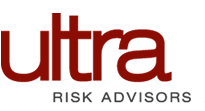HEALTHCARE
November is Home Health Care & Hospice Month
by Alan Hille
During November, the home care and hospice community honor the millions of nurses, home care aides, therapists, and social workers who make a remarkable difference for the patients and families they serve. These heroic caregivers play a central role in our health care system and in homes across the nation. To recognize their efforts, we Continue Reading »
In Risky Situations, Don’t Go it alone
by Michelle Foster Earle, Guest Blogger
Healthcare risk managers work hard to identify patient safety hazards, assess the level and type of risk, control or remove potential harm and loss triggers, monitor risks and improve performance. With their eyes on patient safety and internal risk management activities, a few things sometimes fall through the cracks because they are out of sight, Continue Reading »
Don’t Let Your Clients Fail to Delegate and Hold Partners Accountable
by Michelle Foster Earle, Guest Blogger
Healthcare risk managers work hard to identify patient safety hazards, assess the level and type of risk, control or remove potential harm and loss triggers, monitor risks and improve performance. With their eyes on patient safety and internal risk management activities, a few things sometimes fall through the cracks because they are out of sight, Continue Reading »
Don’t Leave Money on the Table
by Michelle Foster Earle, Guest Blogger
Healthcare risk managers work hard to identify patient safety hazards, assess the level and type of risk, control or remove potential harm and loss triggers, monitor risks and improve performance. With their eyes on patient safety and internal risk management activities, a few things sometimes fall through the cracks because they are out of sight, Continue Reading »
5 Reasons Blockchain Could be the Next Solution for Secure Access to Patient Data
by Michelle Foster Earle, Guest Blogger
What is bitcoin? What is blockchain? If you’ve never heard of either, you probably have no idea what either of them could possibly have to do with healthcare. Bitcoin is an alternative type of payment system that is sometimes mentioned in the media as “Cryptocurrency” or digital currency. Bitcoin and other digital currencies rely on Continue Reading »
5 Critical Steps to Take After a Cyber Breach
by Ben Newman
Many healthcare entities do not have a plan in place to respond to and handle a cyber breach. There is a lot of confusing information going around – by people who may not be experts. A lot of questions come up right away for example, “What authorities need to be notified?” “How do we document Continue Reading »
5 Ways Human Services Organizations Can Address the Needs of Clients with PTSD
PTSD, or Post Traumatic Stress Disorder, is a psychiatric disorder that can occur following the experience or witnessing of life-threatening events such as military combat, natural disasters, terrorist incidents, serious accidents, or physical or sexual assault in adult or childhood. Most survivors of trauma return to normal given a little time. However, some people will Continue Reading »
5 Scenarios That Could Make Your Healthcare Client Vulnerable to a Lawsuit
Managing risk in healthcare facilities is a multi-faceted, ever-changing challenge. Identifying areas of vulnerability is the first step in any risk management program. In this blog post, we’ve identified five scenarios that can put healthcare entities and professionals at the greatest risk of a lawsuit and we’ve added some best practices that can be put Continue Reading »
5 Tips for Safeguarding Against HIPAA Violations
To avoid HIPAA violations, it’s important for healthcare organizations to put into place strict guidelines that protect patient privacy. HIPAA violations may result in penalties of $100 to $50,000 per violation, depending on the conduct at issue. When it comes to data breaches, a single event may result in numerous violations. For example, the loss Continue Reading »
Top 5 Types of Data Breaches in Healthcare – Not from Hacking
Healthcare is now the top industry for cyber attacks. Health records, much of which remain valid and exploitable for years, contain valuable information for hackers. Credit card data, email addresses, social security numbers, employment information and medical history records can be used in many instances of fraud or identity theft. But healthcare data breaches are Continue Reading »






